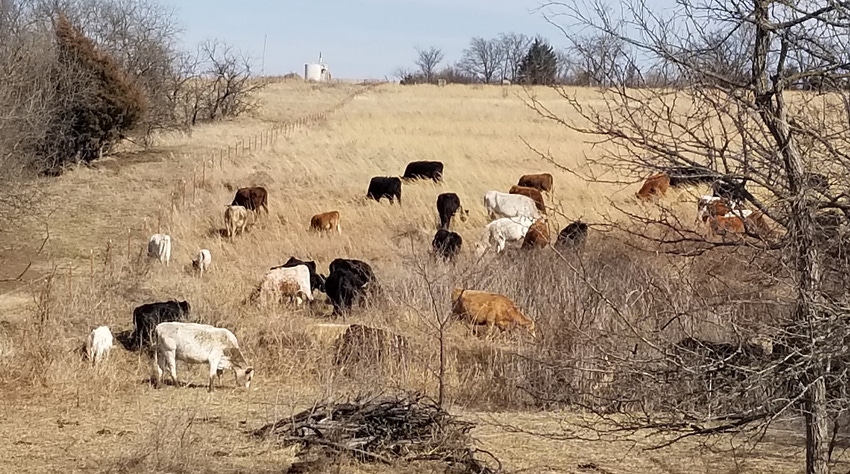
Presently it seems that a bunch of supposedly educated people have become idiots. The word idiot means “to be without knowledge.”
Courts of law do not allow the lack of knowledge as a legal defense in civil or criminal cases unless the defendant can prove insanity, so I’m wondering why it is being tolerated and apparently encouraged across our culture.
Have large segments of our society gone insane? Likely this is the case or at least they are suffering from a lack of knowledge and understanding. History indicates this is not new.
As an example, there are a lot of people of power who are campaigning for the removal of livestock from the North American continent. These people are idiots, meaning they are without knowledge, and their ignorance of the potential benefits from correctly managed livestock is blatant.
In reference to meatless meals, KFC and Hardees have lost all degrees of what I consider ethical food serving. There are plenty of other examples. Remember that these people are university graduates. Some of them are Sunday school teachers. Dog and cat food are much more nutritious than the fake food they want people to eat.
The fact that the soil that feeds us and protects our lives was developed by the interactions of plants and animals does not seem important to these folks, or perhaps it is completely unknown to them. The fact that meat is the only consistent source of all the necessary amino acids and many of the vitamins and minerals required for health must be eluding these idiots. Plants require animals and animals require plants. The soil requires both, and humans are in constant need of all three.
A lot of farmers and maybe a majority of the voters don’t understand or have a clue when it comes to the animal-plant-soil relationships and human dependence upon it. Lots of citizens know more about prescription drugs than amino acids and nutrient density. They know more about treatment than prevention.
Wildfires have been a regular part of the news in recent times and people fail to see that connection, too. California might be the best example but there are plenty of others. Much of California is in a brittle environment and they normally have seasons with rain or snow, and entire seasons of dry weather and occasionally high winds. Cattle and perennial grasslands have mostly been taken out. The landscape has been moved to brush and annuals that grow and then die and dry out. They become fire fuel in the long dry season.
In other words, the majority of formerly fertile ground has been pushed toward desertification. Think about the Sahara desert in North Africa and remember that it was the Roman Empire’s breadbasket for two centuries.
Fires require fuel and California fires have lots of fuel. Dead plants and dry brush burn real easy and fast. A fire produces its own wind. Huge, extremely dry biomass plus zero green equals big burn.
Properly managed cattle are capable of vastly reducing the fire deal from this landscape. Regenerative boom and bust management results in increases in plant diversity and longer-lived green. Managed cattle with quality planning and execution can create fire breaks. Modern fencing and electricity make for near perfect animal control. There are economical water systems, and a $100 camera can keep an eye on the site.
Few mistakes are bigger than cattle removal and the failure to utilize their abilities to both feed and protect us. Profitability is vital. Letting cattle spread out is most always a mistake from a soil, fire, environment and profit standpoint. But spreading is not comparable to the disaster of removal.
Remember that Smokey Bear has never paid for the first house or burnt-out town. I don’t have all the answers but I’ll assure anyone that will listen that cattle and sheep and goats can reduce fire damages and save a bunch of life and real estate and build soil and new life and provide food, all at the same time.
Changing gears, I’ll be quick to remind everyone that the US has lost a significant percentage of plant and feed nutrient density since WWII and actually before. Removing the cattle from the land has been a major factor, as has modern farming practices. Fake meat products would aggravate both these mistakes.
Fake meat is a nutritional joke based on a bunch of lies. The average dog and cat food sold in America is more nutritious than fake food. Further, notice on packages of quality pet food that the first ingredient is meat!
When you consider all the factors I’ve put forth and more, it seems to me a big part of this problem is a lack of ethics. Truth is being hidden and lies are put out as the replacement for truth.
It would certainly help if beef producers, row-crop farmers, food processors, university experts, and veterinarians spent more time dwelling on ethics. I hope and pray there might still be a chance for politicians, too. But I am not holding my breath!
The opinions of the author are not necessarily those of Beef Producer or Farm Progress.
About the Author(s)
You May Also Like






